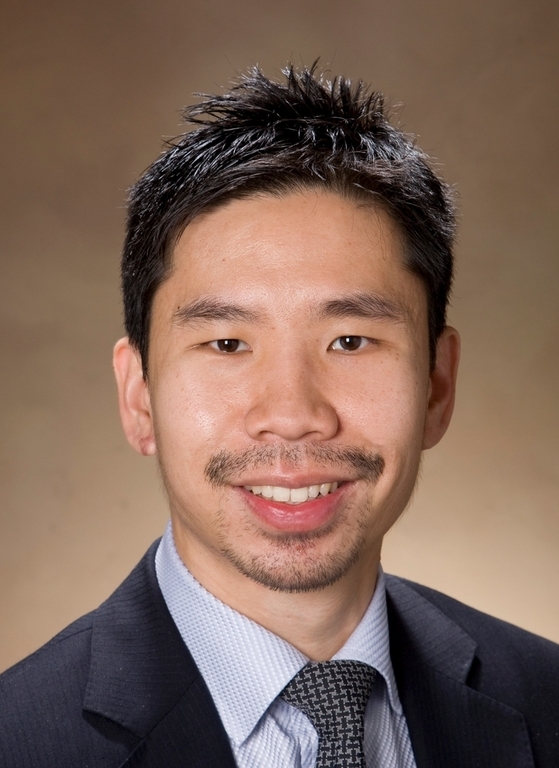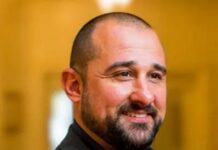
Dr. Tec Chong recently joined The Miriam Hospital as a vascular surgeon and director of the non-invasive vascular lab; he is also a clinical assistant professor of surgery at the Warren Alpert Medical School of Brown University and a member of University Surgical Associates.
Formerly a fellow in vascular surgery at Brigham and Women’s Hospital and Harvard Medical School, Chong earned his medical degree at the University of Sydney in Australia and completed general surgery residencies at Johns Hopkins Hospital and Tufts Medical Center.
Chong answered questions about his work and trends in vascular surgery.
PBN: You are director of the non-invasive vascular lab. Can you explain what the lab does?
CHONG: The lab is a full-service ultrasound lab that performs diagnostic procedures such as evaluation for claudication (pain in the legs due to poor circulation) or for carotid disease, aneurysm screening, renal artery stenosis, ruling out deep venous thrombosis and assessing varicose vein reflux. We have modern equipment and experienced staff and aim to provide accurate diagnoses for the full spectrum of vascular diseases.
PBN: New technologies have, in general, reduced the need for open-heart surgery in recent years and allowed for less-invasive interventions. What kinds of patients are benefiting from these options, and do you see the numbers growing more and more over time?
CHONG: As a vascular surgeon, I am able to offer my patients traditional bypass surgery as well as minimally invasive endovascular procedures such as balloon angioplasty and stenting. I believe that when you are trained … to do both, the patients benefit from getting the most appropriate care tailored to their unique situation. Many patients I see have atherosclerotic disease involving their carotid arteries and leg arteries. I also treat patients with abdominal aortic aneurysms and utilize all the latest stent graft technologies. These less-invasive procedures are already very prevalent, and with time, I am sure that they will continue to grow even further.
PBN: What are the benefits of these technologies, from a clinical perspective? Are there also cost savings involved?
CHONG: I am a strong proponent of embracing new and emerging technologies in medicine to benefit patients. These minimally invasive techniques in endovascular surgery allow me to treat patients who will be able to return to their normal functional status sooner. In more debilitated patients, I am able to offer them a solution without huge surgical risks. This is a win-win situation for all involved. Less reliance on inpatient hospital bed days and intensive-care unit time also reduces the cost to the health care system.
PBN: One of your specialties is peripheral artery disease. How big an issue is this, both in terms of incidence and in the impact it has on patients? How well can you treat it?
CHONG: Peripheral artery disease or PAD is a very prevalent condition, especially if you have any hypertension, diabetes or hypercholestrolemia, smoke, or have a family history. Increasing age after 40 also significantly increases your risk of PAD. There is a very simple screening test for PAD called the ankle brachial index or ABI, which can be easily performed at any physician office. … Treatment involves both targeting the patient’s risk factors with medicines as well as treating any symptoms that may arise, like claudication (pain in the legs with walking). I can treat these very well, usually with minimally invasive techniques of balloon angioplasty and stenting.
PBN: With the arrival of Dr. Frank Sellke, Lifespan’s new chief of cardiothoracic surgery, the Miriam and Lifespan have signaled a desire to take their cardiovascular surgery programs to new levels of specialization and expertise. What role do you expect to play in that effort?
CHONG: The Miriam has always been a leader in cardiovascular medicine and surgery and will continue to do so. Dr. Sellke’s arrival only seeks to improve on our mission. His focus is cardiac surgery, and he will be strengthening that department. As a vascular surgeon, I concentrate on the arterial and venous system outside of the heart and strive to also provide the best patient care by keeping abreast with emerging technologies on the horizon.












